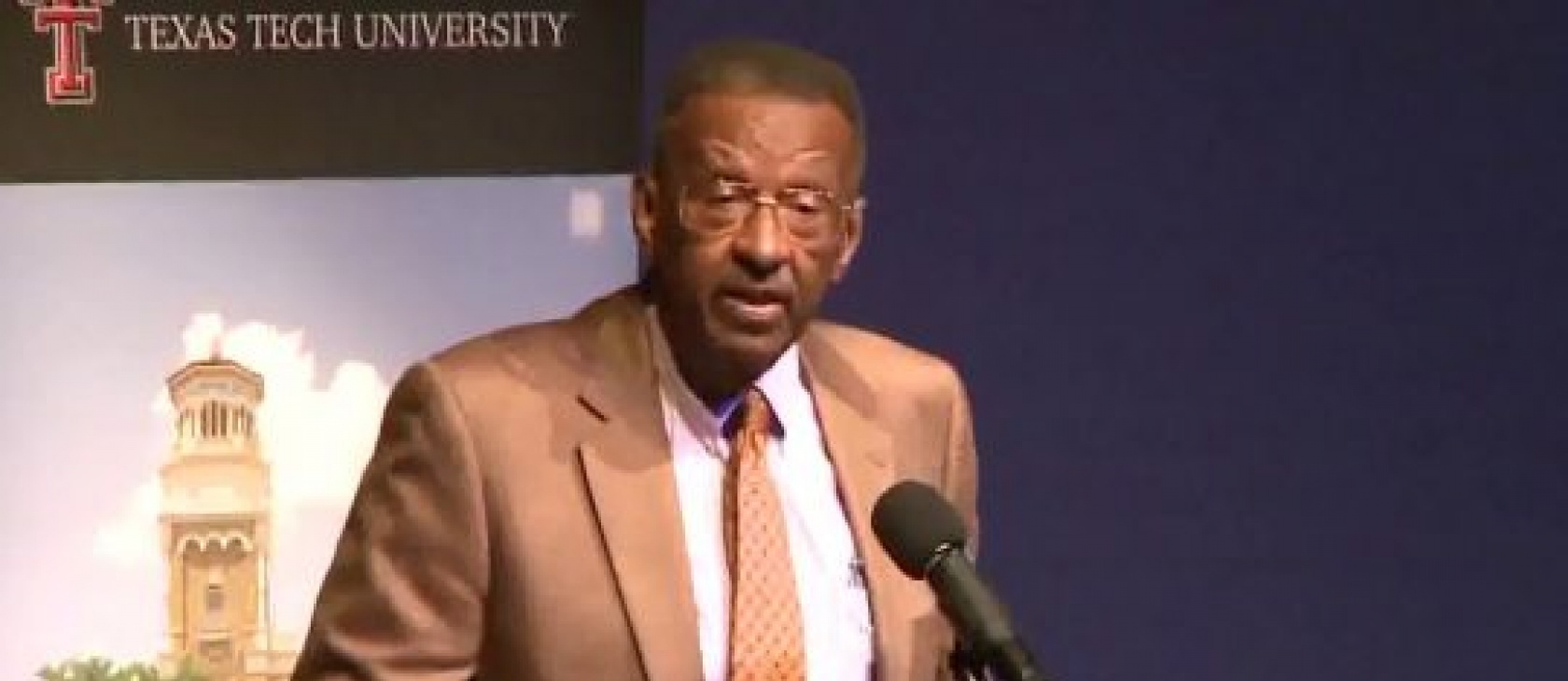The world lost a voice for logic, liberty, and love of the U.S. Constitution when economist Walter Williams died on December 2, 2020, at the age of 84. Williams worked his way out of grinding poverty in the Philadelphia housing projects to chair George Mason University’s economics department, author 10 books and more than 150 publications, and become one of the most insightful commentators of the last four decades. Williams spread his message of racial equality, the dignity of work, and the morality of capitalism through his syndicated newspaper column, PBS documentaries, and frequent radio and TV appearances.
Walter Edward Williams was born on March 31, 1936, in Philadelphia. His father abandoned the family, leaving his wife, Catherine, to raise their three-year-old son and two-year-old daughter. Williams credited his (illegal) child work history with instilling the drive and habits that propelled him to success.
Williams earned his Ph.D. in economics from UCLA in 1972 and taught at Philadelphia’s Temple University for five years before moving to George Mason University, where he chaired the economics department (1995-2001). For 40 years his nationally syndicated column, “A Minority View,” appeared in 140 newspapers. He wrote 10 books, beginning with 1982’s The State Against Blacks, often dealing with provocative questions, such as 2011’s Race and Economics: How Much Can Be Blamed on Discrimination? He produced multiple documentaries for PBS, starting with 1985’s Good Intentions, and served as the guest host of Rush Limbaugh’s radio show.
Williams leveraged his expertise in economics to promote the cause of racial equality – and to encourage his fellow citizens to root out all forms of state-sanctioned discrimination. He opposed the artificial barriers and robust state interventionism that kept black people down in the Jim Crow South. (He wrote a full-length book on the statist economic underpinnings of South African apartheid, as well.) At the same time, he believed all Affirmative Action programs, set-asides, and other forms of reverse discrimination should be abolished – putting him at odds with modern so-called “antiracist theorists” like Ibram X. Kendi.
He believed the free market’s “virtuous cycle” allowed all talented people to thrive. “The people who are for discrimination are also against markets, because they know markets tend to be colorblind,” he said. “The morality of the free market should be stressed because it is far superior to any other method of allocating resources.” Williams steadfastly warned against seeking a unitary political solution to a problem rooted in innumerable personal choices.
He found a multitude of government programs retarding black progress: the minimum wage, occupational licensing laws, and the welfare state. A high minimum wage increases unemployment by requiring unskilled eemeployees to demand more money than their work could justify. Occupational licensing laws limit competition and prevent poor-but-industrious individuals from bettering their lot in life. And he demonstrated with mathematical precision how social assistance programs underwrote the destruction of the black family.
He often reminded complacent readers of American exceptionalism. Echoing Lord John Acton, Williams said, “Liberty is the rare state of affairs in mankind’s history. Arbitrary abuse and control by others is the standard.”
Williams also highlighted the necessity of faith and virtue in maintaining our inalienable rights. “The attack on Christian ideas and Christian public displays is part and parcel of the leftist control agenda,” which demands “that our primary allegiance be with government,” he wrote. “As such, there must be an attack on allegiances to the teachings of the church and family,” including its traditional teachings on marriage.
Williams’ superlative work, singular intellect, and unfailing honesty are sorely missed. In addition to his daughter, he leaves behind a gaping hole in academia and a grateful world of friends and readers who benefited from the fruits of his scholarship.




